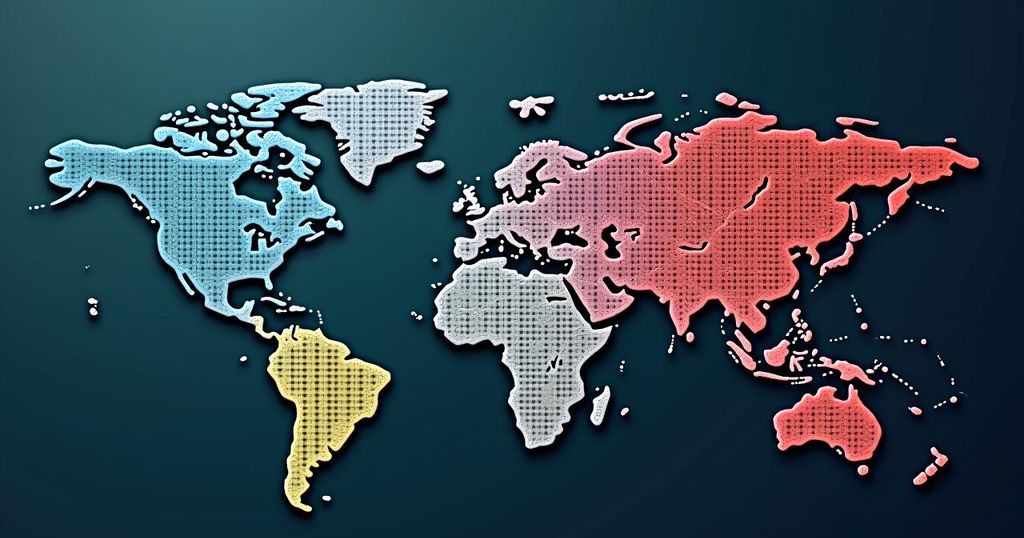A new Freedom House report identifies Myanmar and China as having the worst internet freedom globally, marking the 14th year of decline in global internet freedoms. Kyrgyzstan recorded the sharpest drop in 2024, as government actions severely restricted online expression. The report indicates a general weakening of human rights protections in many countries while highlighting Iceland as having the freest online environment.
A recent report by Freedom House reveals that Myanmar and China share the unenviable distinction of possessing the worst internet freedom conditions globally. This finding is part of the broader Freedom on the Net (FOTN) report, which indicates a continuous decline in global internet freedom for 14 consecutive years. In this year’s study, Kyrgyzstan experienced the most significant decline, largely due to government repression of online activism and media censorship, culminating in actions such as the closure of the investigative outlet Kloop. The report further emphasizes that in 27 out of the 72 countries assessed, human rights protections online have weakened. Myanmar’s situation has deteriorated to a point where it equals China in terms of low internet freedom ratings. The military regime has heavily suppressed dissent through increased censorship and surveillance, with recent government measures including restrictions on Virtual Private Networks (VPNs). China’s restrictive digital environment, characterized by its “Great Firewall,” aims to shield the regime from external influences and suppress unfavorable content regarding the Communist Party, to which the Chinese government has categorically denied allegations of limited freedoms, deeming the report as “entirely baseless.” Additionally, the report noted further downgrades in internet freedom for countries such as Azerbaijan and Iraq, citing instances of imprisonment related to social media and violent repressions following online protests. On a positive note, Iceland continues to be recognized as the country with the most freedom online, with countries like Estonia, Canada, Chile, and Costa Rica trailing closely. Zambia has seen improvement in online freedoms, suggesting a rising trend in digital civic engagement. For the first time, the report evaluated the internet conditions in Chile and the Netherlands, both showcasing commendable protections for online human rights. The impact of government surveillance and limitations on digital campaigning was significant in the United States, where concerns about the lack of safeguards surfaced. As the nation approaches upcoming elections, the report observed that numerous voters would have to operate within a heavily moderated information landscape that potentially compromises their decision-making processes regarding their future.
The Freedom on the Net report released by Freedom House, a respected American pro-democracy organization, assesses the state of internet freedom and civil liberties across various countries. The 2024 edition paints a stark picture of declining freedoms, emphasizing that Myanmar and China are at the bottom of the ranking due to extensive government censorship and suppression of dissent. The study highlights significant drops in internet freedoms in several nations and draws attention to restrictive practices that hinder free expression and access to information. Amidst these challenges, the report also identifies some countries maintaining or improving their online freedoms, showcasing a complex global scenario of internet governance.
In summary, the Freedom on the Net report illustrates a concerning trend of declining global internet freedoms, with Myanmar and China at the forefront of this repression. The findings underscore the risks faced by individuals engaging in online speech and activism, particularly in environments where governments actively suppress dissent and curtail access to information. These developments necessitate urgent attention to safeguard digital rights and promote freedom on the internet worldwide.
Original Source: www.aljazeera.com






